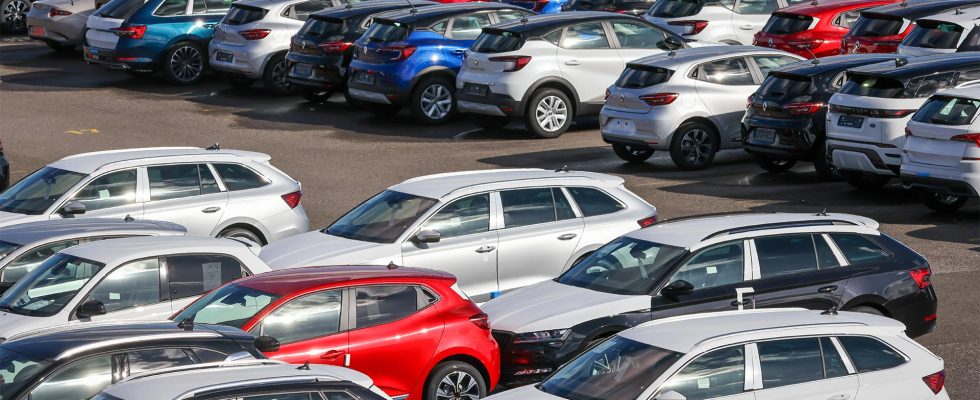Status: 04/19/2023 1:45 p.m
Significantly more new cars are being bought again in Europe. In March, the number of registrations rose to more than one million for the first time since June 2021. Across the EU, petrol engines continue to account for the majority of newly registered cars.
In the EU, car sales continue to recover from supply chain problems. In March, the number of newly registered private vehicles rose by 28.8 percent to almost 1.088 million units compared to the weak prior-year period, as the European industry association ACEA announced today in Brussels. This results in an increase of 17.9 percent to almost 2.7 million units for the first three months of the year.
A year ago, the shortage of semiconductors had slowed down car sales. This year, sales increased significantly in January and February – now the recovery trend is continuing. In the four key markets, the association recorded more new registrations in March, especially in Spain (plus 66 percent), Italy (plus 40.7 percent) and France (plus 24.2 percent). In Germany, the car companies sold 16.6 percent more cars.
Gasoline still the most popular
Across the EU, petrol engines continue to make up the majority of newly registered cars at 37.5 percent. Hybrid electric vehicles are now in second place, accounting for almost a quarter of all cars.
Overall, vehicles with alternative drives attracted a great deal of interest. Electric cars were also able to continue to grow: their registrations rose by 58 percent across the EU to 151,573 cars. According to the information, the total share of electric cars reached almost 14 percent in March. New diesel cars account for almost 15 percent.
Fewer bottlenecks than last year
The Association of the German Automotive Industry (VDA) emphasized that there was still a large “sales gap” compared to the first quarter of the year before the crisis, 2019. “The delivery situation is improving, the manufacturers can now process the orders from last year,” explained car expert Peter Fuss by EY. There are still bottlenecks in pre-products and semiconductors, but the situation is significantly better than a year ago and will continue to ease as the year progresses. The demand for electric cars is currently still greater than the supply.
Fuss explained that more combustion engines were still being sold than electrified cars in almost all EU countries. “That will not change in 2023 either.” The reasons are the high prices for e-cars, an incomplete charging infrastructure, insufficient ranges and a “very thin range in the small car segment”.

